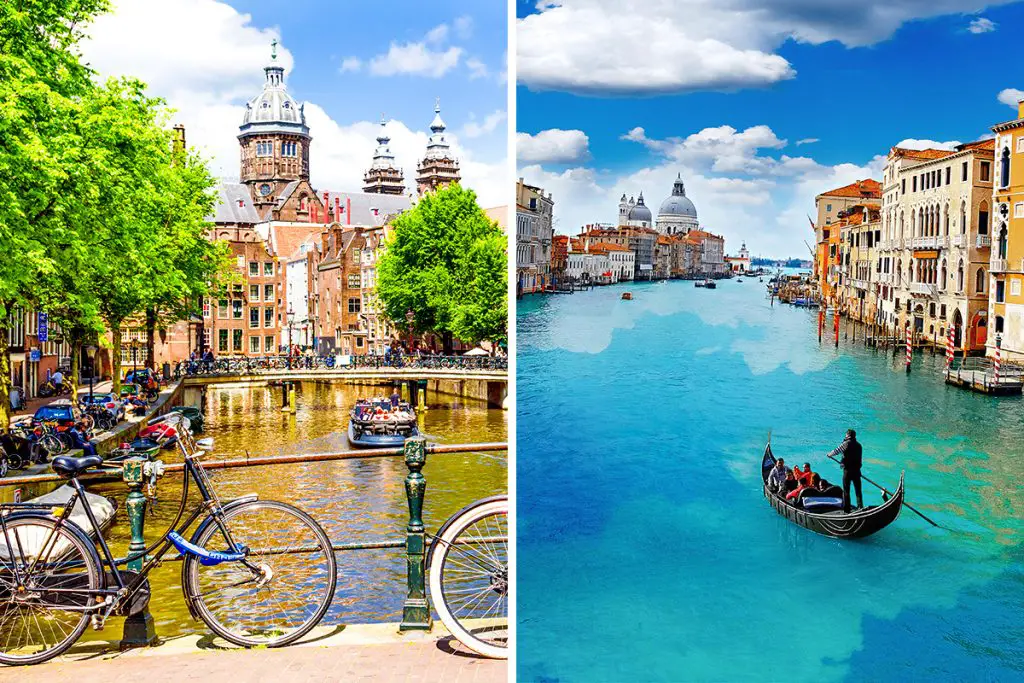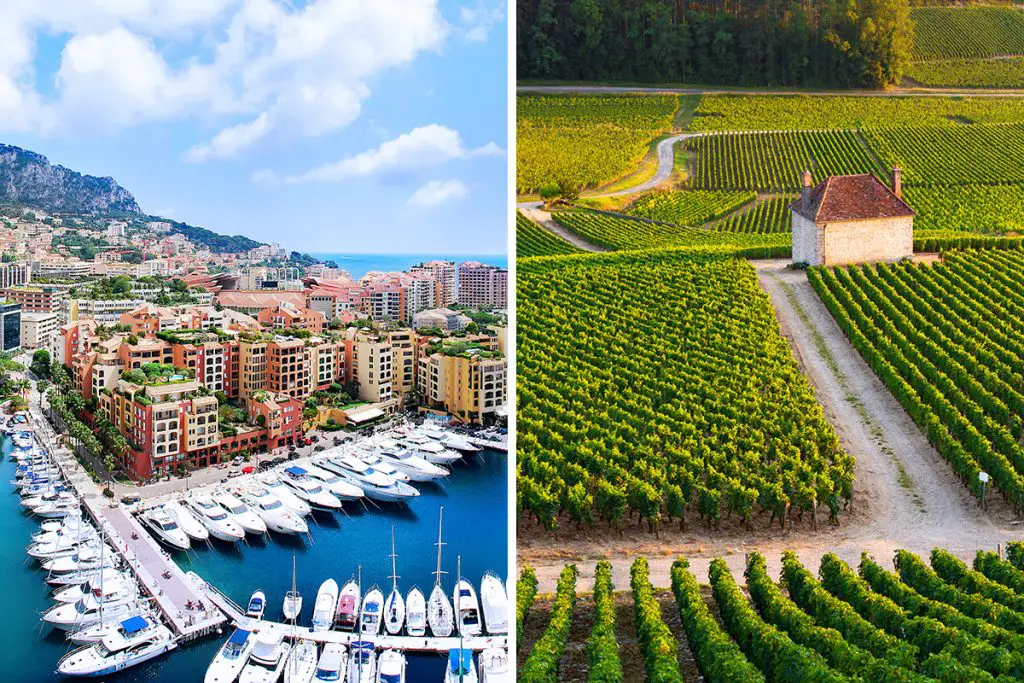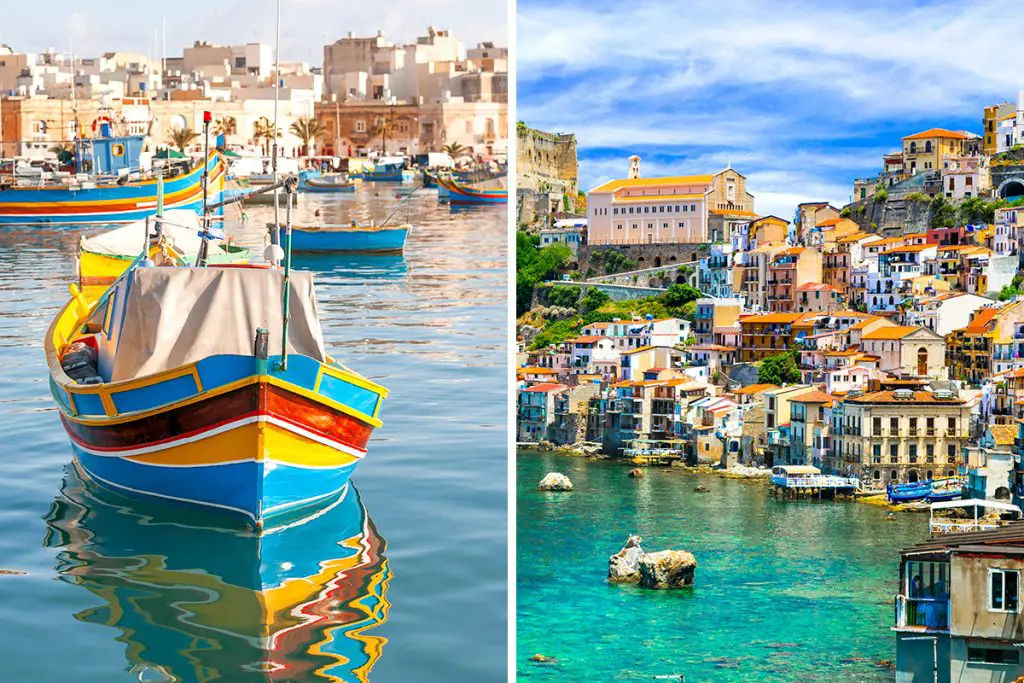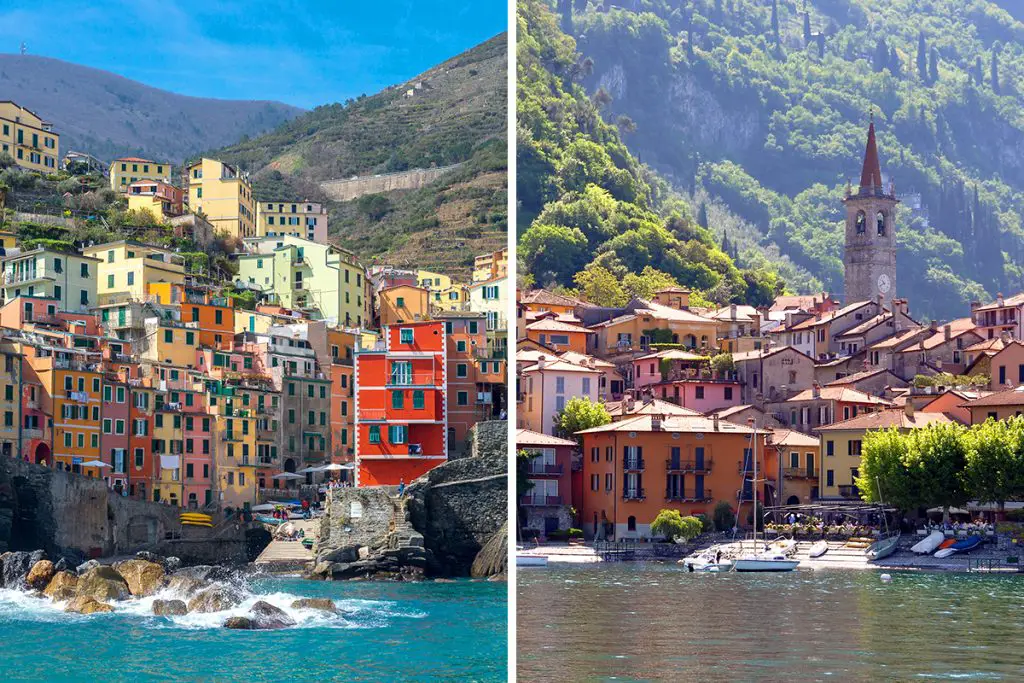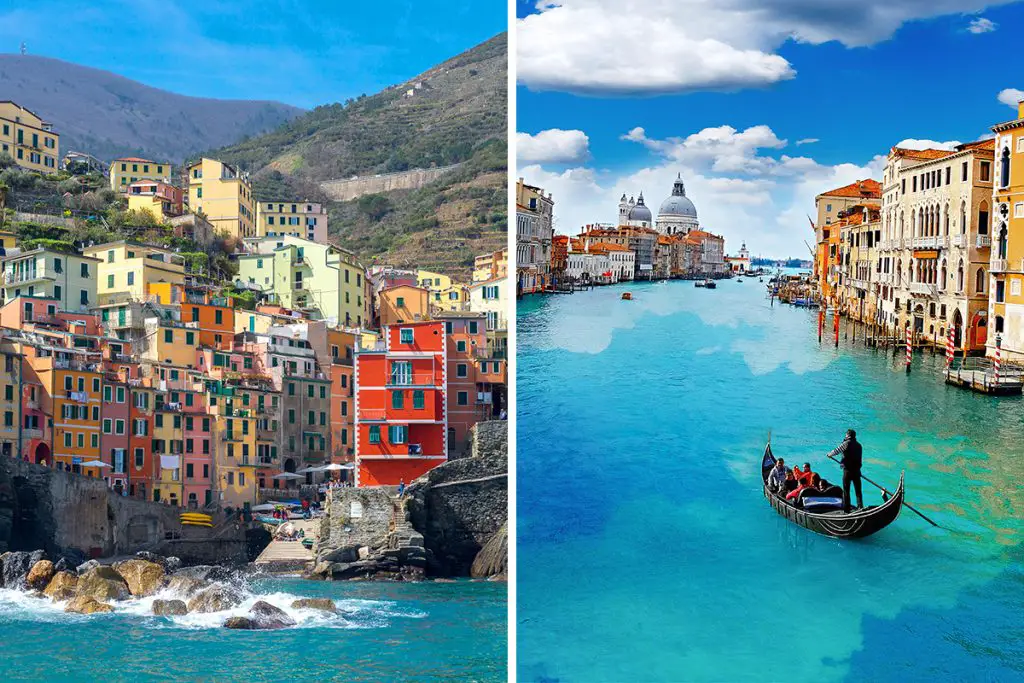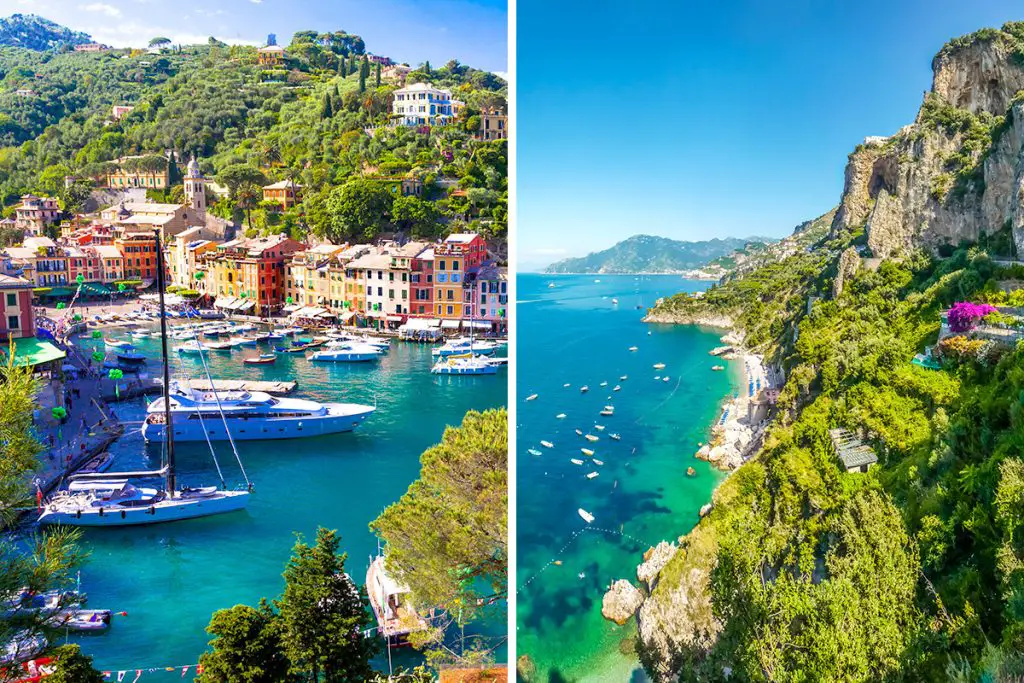As you consider your travel plans, you’ll find that Paris and Venice each offer an array of enticing charms. Dive deep into their unique worlds as you uncover the diverse stories these cities hold. Eager to find out more? You’re in for an exciting journey.
History & Culture
When it comes to history and culture, both Paris and Venice are treasure troves. Paris, with its roots dating back to the 3rd century BC, offers a fascinating journey through time. The city is a spectacle of architectural grandeur, displaying styles from different eras – Roman, Medieval, Renaissance, and more.
In contrast, Venice, founded in the 5th century AD, boasts a distinctive history. With its unique cityscape of floating buildings, Venice encapsulates a blend of Gothic and Byzantine influences. The city’s rich mercantile history is evident in its grand palazzos and piazzas, telling tales of its opulent past.
In terms of culture, Paris is a hub for arts, literature, and philosophy. It’s the city of Dumas, Hugo, and Sartre, where every corner whispers stories of artistic and intellectual revolutions. The city’s love for the arts is showcased in its abundant galleries, theaters, and performance spaces.
Venice, on the other hand, has a flourishing arts scene deeply rooted in tradition. Known for its Venetian School painters, grand architecture, and classical music, it’s a city where art is an integral part of everyday life. Venice’s annual Carnival, with its vibrant parades and ornate masks, further underlines the city’s cultural richness.
In summary, both Paris and Venice offer rich historical and cultural experiences. Choosing between the two may come down to your personal tastes. If Gothic and Romanesque architecture and intellectual pursuits excite you, Paris is your city. If, however, the allure of a city built on water, coupled with a love for the arts and traditional festivals appeals to you, Venice might be your dream destination.
Attractions & Activities
Exploring the plethora of attractions and activities that Paris and Venice have to offer is nothing short of an adventure. The cities brim with captivating sights and memorable activities, each reflecting their unique character and charm.
Paris is a city that rewards those who roam. You could start your day strolling along the Seine, watching the city wake up as you admire iconic landmarks like the Eiffel Tower, Notre Dame Cathedral, and the Louvre.
For art enthusiasts, spending a day exploring the world-renowned collections at the Louvre or Musee d’Orsay is an absolute must. History buffs would appreciate a visit to the Palace of Versailles, a magnificent symbol of the absolute monarchy of the Ancien Régime.
Venturing into Venice, you will find that the city itself feels like an attraction. A gondola ride along the Grand Canal offers views of stunning palazzos and centuries-old bridges. St. Mark’s Square and the Doge’s Palace are iconic spots that tell tales of Venice’s past glory.
For those seeking a quiet retreat, the islands of Murano and Burano, known for their glass-making and lacework, respectively, offer a delightful escape from the city.
Summing up, both Paris and Venice offer a host of attractions and activities that can cater to different interests. If you are enchanted by world-class museums, historic landmarks, and strolls along picturesque streets, Paris might be your ideal choice. On the other hand, if you are drawn to a unique cityscape, scenic boat rides, and traditional artisan crafts, Venice could be the city for you.
Eating, Drinking & Nightlife
When it comes to culinary experiences, nightlife, and unique drinks, Paris and Venice both have a lot to offer, each with its distinct flair.
In Paris, the gastronomic landscape is diverse and delectable. You can enjoy everything from flaky croissants in a quaint café to gourmet meals in Michelin-starred restaurants. For a unique Parisian experience, try escargot or coq au vin in one of the traditional bistros.
As for drinking, Paris boasts an array of wine bars and pubs where you can sip on French wines or try pastis, an anise-flavored spirit.
On the other hand, Venice offers a rich culinary tradition centered around fresh seafood. Local specialties include sarde in saor (sweet and sour sardines) and risotto al nero di seppia (risotto with cuttlefish ink). When it comes to drinking, a trip to Venice isn’t complete without tasting the local spritz, a refreshing cocktail made with Prosecco, a dash of bitter liqueur, and soda.
In terms of nightlife, Paris has an electrifying scene with many chic clubs, jazz bars, and live music venues. The Marais district, in particular, is known for its vibrant nightlife. Venice offers a more relaxed nightlife vibe, with the tradition of ‘bacari’ – local wine bars where Venetians enjoy ‘ombra e cicchetti’, which is a glass of wine and small plates of local specialties.
In summary, if you are a foodie who enjoys vibrant nightlife, Paris might appeal more to you. However, if you love seafood and are looking for a relaxed evening of traditional dining and local drinks, Venice could be your choice.
Shopping
Both Paris and Venice are famous shopping destinations, each offering a unique retail experience that matches their cultural aesthetics.
In Paris, fashion lovers will find a paradise. From high-end designer boutiques located in the Triangle d’Or to vintage stores in the Marais, there’s something for every fashion palette. Paris is also the home of several iconic department stores like Galeries Lafayette and Printemps. And don’t forget to check out the bookshops along the Seine River for some hidden treasures.
Venice, on the other hand, is renowned for its artisanal crafts. You can find exquisite Murano glass products, handcrafted lace, and unique masks that are perfect souvenirs. The Rialto Market is a great place to explore local produce and Venetian specialties.
Overall, if high fashion and designer brands are what you seek, Paris should be your shopping destination. But if you appreciate traditional crafts and unique local products, Venice would offer a more fulfilling shopping experience.
Accommodation
Accommodations play a significant role in shaping your holiday experience, and both Paris and Venice provide a myriad of options catering to various preferences and budgets.
Paris has an abundance of accommodations, ranging from boutique hotels in Montmartre to luxury establishments on the Champs-Elysées. For a unique experience, consider a stay in one of the apartments in the historic Marais district or a quaint guesthouse in the artsy Latin Quarter.
Venice, on the other hand, offers a unique stay experience with its palazzo-turned-hotels along the Grand Canal. If you’re after a quiet, intimate experience, consider staying in the less touristy but equally beautiful Dorsoduro district. And for a more budget-friendly option, Mestre, on the mainland, offers cheaper accommodations with easy access to the city.
In essence, Paris offers a broader range of accommodations, suitable for all tastes and budgets. However, Venice provides a unique, immersive experience with its historic, canal-side lodgings.
Family-Friendliness & Children’s Activities
Family vacations require destinations that are both fun and educational for children, and both Paris and Venice are great options.
Paris is filled with family-friendly activities. The Eiffel Tower and the Louvre Museum are must-visits, and the Cité des Sciences et de l’Industrie is a hands-on science museum that will keep kids engaged. Paris also boasts several parks, such as the Jardin du Luxembourg, where children can enjoy puppet shows, pony rides, and playgrounds.
Other attractions that kids will love include the magic museum Musée de la Magie, the Natural History Museum with its dinosaur skeletons, and the Seine River boat tours. Paris is also home to Disneyland Paris, where families can experience the magic of Disney in Europe.
In Venice, kids can enjoy the unique experience of a gondola ride or a visit to the colorful island of Burano. The Natural History Museum offers interactive exhibits that will delight the little ones, and a mask-making workshop can be a fun family activity.
Venice also has some beautiful churches and palaces that can spark children’s imagination, such as the Basilica of San Marco and the Doge’s Palace. For a day trip, families can explore the nearby islands of Murano, famous for its glass-making, and Torcello, with its ancient cathedral and legends.
In conclusion, both Paris and Venice are kid-friendly, but Paris has a slight edge with its diverse range of educational and fun activities for children.
Getting There & Getting Around
Getting to and around your chosen destination can significantly influence your vacation experience, and both Paris and Venice have efficient transportation systems.
Paris is easily accessible, being a major international hub serviced by two airports, Charles de Gaulle and Orly. From the USA, direct flights take about 8-9 hours (approx 3600-4050 miles, 5790-6520 km). Once in Paris, the extensive Metro system, supplemented by buses and trams, makes getting around the city easy and efficient.
In contrast, Venice is served by the Marco Polo airport, and direct flights from the USA take around 8-10 hours (approx 4100-4600 miles, 6600-7400 km). The unique feature of Venice is its water-based transport system. Vaporettos (water buses) are the main form of public transport, supplemented by water taxis and the iconic gondolas.
In conclusion, both Paris and Venice are easily accessible from major international locations. However, getting around differs significantly, with Paris offering a conventional and extensive metro system, and Venice providing a unique, water-based transport experience.
Weather
Your trip’s experience can be significantly influenced by the weather, and both Paris and Venice have distinct climate characteristics.
Paris, located in a temperate region, experiences four distinct seasons. Winters (December to February) are cold but rarely freezing, with temperatures averaging 41°F (5°C). Summers (June to August) are warm, with an average temperature of around 77°F (25°C). Spring and autumn are mild and often the best times to visit.
Venice, on the other hand, has a humid subtropical climate. Winters are cool, with temperatures around 45°F (7°C), while summers can be hot and humid, with averages around 82°F (28°C). Spring and early autumn are the most comfortable seasons to visit, but the city can experience high water levels, known as “aqua alta,” during these periods.
In essence, Paris offers a moderate climate with distinct seasons, while Venice has hotter, humid summers and the unique aspect of high water levels in certain seasons.
Safety
Feeling safe and secure during your travels is crucial, and both Paris and Venice are generally considered safe destinations.
Paris, a bustling metropolis, has all the safety considerations typical of large cities. Petty crimes like pickpocketing can occur, particularly in tourist-heavy areas. However, with general precautions, such as keeping an eye on your belongings and staying vigilant in crowded places, you can have a secure visit.
Venice, with its slower pace and close-knit community feel, is generally safe. Petty crimes do occur, but they are relatively less frequent. One unique safety aspect to consider in Venice is navigating its network of canals and bridges, especially during high water periods.
In conclusion, both Paris and Venice are generally safe cities. Nonetheless, exercising standard travel precautions is advised in both.
Cost
The cost of your holiday is an essential consideration, and both Paris and Venice offer a range of options catering to various budgets.
Paris, with its broad range of accommodations, dining, and entertainment options, can cater to both budget and luxury travelers. A modest meal can cost around 15 Euros ($18), while a metro ride is around 1.90 Euros ($2.30). The average cost of a hotel in Paris is $126 per night, but you can find cheaper options if you book in advance or stay away from the city center.
Paris also has many free or low-cost attractions, such as the Notre Dame Cathedral, the Sacre Coeur Basilica, and the Pere Lachaise Cemetery.
In Venice, the cost of living is generally higher. Due to its unique location, goods and services come at a premium. A simple meal can cost around 20 Euros ($24), and a single vaporetto ride is 7.50 Euros ($9). The average cost of a hotel in Venice is $237 per night, which is almost twice as much as in Paris.
Venice also has fewer free attractions, and most museums and churches charge an entrance fee. The most iconic activity, a gondola ride, can cost up to 100 Euros ($120) for 40 minutes.
In essence, while Paris offers a wider range of cost options, Venice tends to be more expensive due to its unique geographical considerations.
Which Is Better – Paris or Venice?
Choosing between Paris, the ‘City of Light’, and Venice, the ‘City of Canals’, is indeed a tough decision. Both cities offer rich cultural experiences, remarkable attractions, and unique experiences that set them apart. Let’s recap what we’ve discussed to help make your choice a bit easier.
Paris, with its deep historical roots and multicultural ambiance, offers a rich tapestry of art, history, and culture that has shaped the modern world. Venice, on the other hand, is a time capsule that offers a unique glimpse into its grand past, reflected in its unique cityscape of canals and Renaissance architecture.
In terms of attractions and activities, Paris offers a variety of world-renowned landmarks, museums, and gardens. Venice also presents a distinctive array of attractions, but with a twist – exploring the city itself is a unique activity, with its labyrinth of canals and narrow lanes.
When it comes to beaches, neither Paris nor Venice stands out, but each offers unique waterfront experiences. Paris has the River Seine, while Venice offers the Lido’s beaches and the unique experience of a city built on water.
The culinary experiences in Paris are as diverse as the city itself, with options ranging from charming bistros to Michelin-starred restaurants. Venice offers a unique culinary landscape shaped by its lagoon environment, featuring fresh seafood and local produce.
Shopping in Paris, from luxury boutiques to quirky flea markets, is an experience in itself. Venice offers a unique shopping scene, with an emphasis on artisanal crafts and local products, particularly in its famous Murano glass.
For accommodation, Paris offers a wide range, from luxury hotels to budget-friendly hostels. Venice provides a range of options too, but with a unique twist – some lodgings offer canal views and access.
Considering the weather, Paris experiences four distinct seasons with moderate temperatures. Venice has a subtropical climate, with hot, humid summers and the potential for high water levels during spring and autumn.
Safety-wise, both cities are generally secure. Petty crimes can occur in tourist-heavy areas, but with standard travel precautions, you can have a safe visit.
The cost of your vacation will be affected by your choice. Paris offers a wider range of cost options, while Venice tends to be more expensive due to its unique geographical considerations.
In summary, your choice between Paris and Venice will depend on your personal preferences. If you seek a bustling, multicultural city teeming with historical landmarks, art, and diverse culinary experiences, Paris would be a great choice. If you’re drawn to a unique, romantic city with a rich history, unique architecture, and a slower pace of life, Venice would be perfect.


